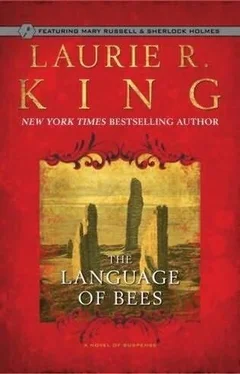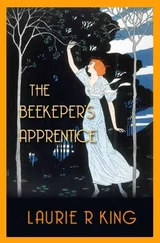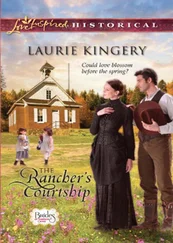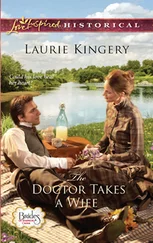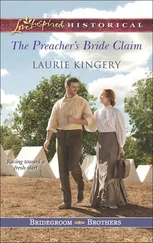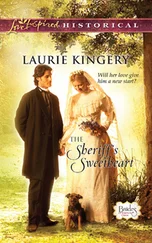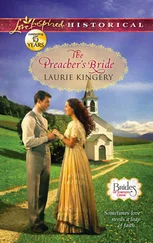Beside them, Damian's right hand rested on Yolanda's shoulder, giving that half of his image the air of a Victorian paterfamilias; the other half with its encircling arm suggested a person more relaxed and modern. He looked happy, prosperous, proud, and amused at that incongruous frock suit.
Yolanda's skirt was not, I noted, flowered. Its cut and hem-line seemed out of date to me, although not as archaic as his coat. No doubt one should not expect the latest in fashion from a Bohemian matron-here in London, Bohemians tended to resemble gipsies or pipe-fitters. “I wonder why they chose such conventional dress and setting for a portrait? It's almost as if they were in disguise.”
“Or fancy-dress,” Holmes said.
“Yes. Especially when you look at the expressions on their faces.” Perhaps Yolanda's face was sparkling with humour rather than intelligence. It made her more sympathetic, somehow.
I was about to put the photograph into my pocket, but Holmes took it from me, laid it face-to against the window, and folded the top down at the line of Damian's shoulders. He ran his thumb-nail hard against the fold; when he handed it back, Damian had been reduced to little more than a black back-drop and a hand on the child's torso. “If you're looking for her, his image will only confuse matters,” he told me.
It was true, the eye focused on a lone woman more easily than with a bearded man looming above her. Still, I couldn't help being aware of the symbolic aspect of the fold as well: Holmes wanted Damian left out of this enquiry.
When we reached Victoria, Holmes, impatient to be about his business, set off on foot towards Westminster and Scotland Yard while I took my place in the taxi queue. I frowned at his back until it disappeared around the corner, then took out the photograph and studied it.
Was it conviction, or apprehension, that made him so determined to exclude Damian?
My club, the Vicissitude, was not an ideal beginning for a hunt into the world of fashion-one was more likely to find expertise on Attic Greek or the missions of China than on expensive clothing-but as it happened, I drew a lucky straw, and some time later sat down to tea with a cousin of the sister-in-law of the Vicissitude's manager, a dangerously thin individual wearing a Chanel dress that was too large for her. She had, until her recent illness, supervised the millinery section of one of London 's large department stores.
“I am trying to trace a pair of shoes. The woman who wore them is dead,” I added, before she could suggest I ask their owner. I described the shoes closely-the shape, the quality of the leather, the tiny bow on the heel. “They didn't look like ready-made shoes, but if they were bespoke, they were for someone other than the woman wearing them. They didn't fit her.”
The thin face made a moue of disapproval. “You would have mentioned if there were an identifying name in them,” she said. I agreed, I would have. “The bow suggests a recent line of quality footwear out of Cardiff, of all places. Harrods carries them, in several styles and colours, although I believe Selfridges is trying one or two lines as well.”
“The woman's frock was from Selfridges,” I reflected.
“Then perhaps you should begin there.”
“I shall, first thing in the morning.” I took care, in shaking her hand, not to bear down with any enthusiasm, lest I crush the bird-like bones.
I came out onto the street to the sound of bells from nearby Westminster cathedral. To my surprise, considering all that had happened that day, it was not yet half past four. The streets were dead, but then, even Oxford and Regent streets would be echoing and empty. On a Sunday in London, one could walk, worship, or improve oneself.
I chose the last option, making my way down to the Tate to spend an hour meandering among paintings that might have looked modern had I not been recently introduced to the work of one Damian Adler.
When I was thrown out at closing, I found a tiny café that offered a meal it called dinner, and dawdled the dusk away, strolling down the river and through the by-ways into Chelsea, waiting until half past eight, when it would be nearly dark enough to break into the Adler house unseen.
Except that I ran into a slight problem.
The police were there first.
The Elements (1): A word (which is air) written on a
piece of paper (which is earth) and burnt (thus, fire) with
the ashes stirred into a glass of water, awaits the throat of a
man. But the glass does not hold the word's essence,
unless it has employed the keys of Time and Will.
Testimony, II:6
IT WAS A SHOCK TO CROSS THE ENTRANCE TO BURTON Place, expecting a quiet cul-de-sac with a dark house at its far end, and to see the road crowded with onlookers and official motorcars, and every light in number seven burning. I drifted into the street, coming to rest amidst a group of ogling neighbours, and primed the gossip pump with a few innocuous questions.
The police, according to one of the children, had been in residence for less than half an hour. They had brought a locksmith, a servant volunteered, who worked on the door for a good ten minutes before it had opened. The people in number eleven had 'phoned the police at tea-time, another maid was eager to say, after some woman had come asking about the Adlers the night before.
I watched for a few minutes, then faded away, to circle around the back of the house through the service alley. I stood on tip-toes to peer over the wall, seeing with disgust the signs of a house being thoroughly searched: constables framed by the sitting room window off to the left, more constables in an upstairs bedroom, the noise of loud constabulary voices and heavy constabulary shoes.
I decided to wait for a while, but before five minutes had passed, I heard the sound of running feet behind me. I ducked behind a bush, one with an unfortunate number of prickles in it, then noticed that the person fast approaching not only lacked a torch, but was trying to run quietly on the dirt surface. As he darted past, I saw his silhouette, and hissed loudly.
His feet stopped instantly although the rest of him did not, and he slid along the loose surface for several feet, arms flailing. He did not fall, but whirled and came back to where I stood.
“Well done, Holmes,” I said in admiration. I was not at all sure that I could have performed the manoeuvre without going down.
“The police traced her,” he whispered.
“My fault, I'm afraid. One of the neighbours I talked to last ni-”
“I thought to have more time,” he cut in urgently. My own pulse quickened.
“Time for what?”
“There is an object I must remove from the house before the police find it.”
“What is it?”
“Later, Russell. Come.” He dragged me to the gate, raised his head to look over, then went up on his toes and stretched his arm down; I heard the click of a latch.
The house had two doors that opened onto the garden: one near the sitting room, the other to the kitchen at the right. The kitchen door stood open, light spilling out, but at the moment there was no constable outside of the house. We slipped into the garden, closing the gate, and Holmes pointed to the stairway one could see through a window above the kitchen.
“In five minutes, anyone in the upper storeys will come down those stairs. One minute afterwards, I will go up them; I will need no more than three minutes, then I will come down again. If anyone starts up the stairs while I am still inside, you must create a diversion. Any diversion at all, I don't care, just so you are not caught. An arrest would be disastrous.”
“Holmes-”
“Russell, we have no time. I will meet you at Mycroft's later.”
Читать дальше
